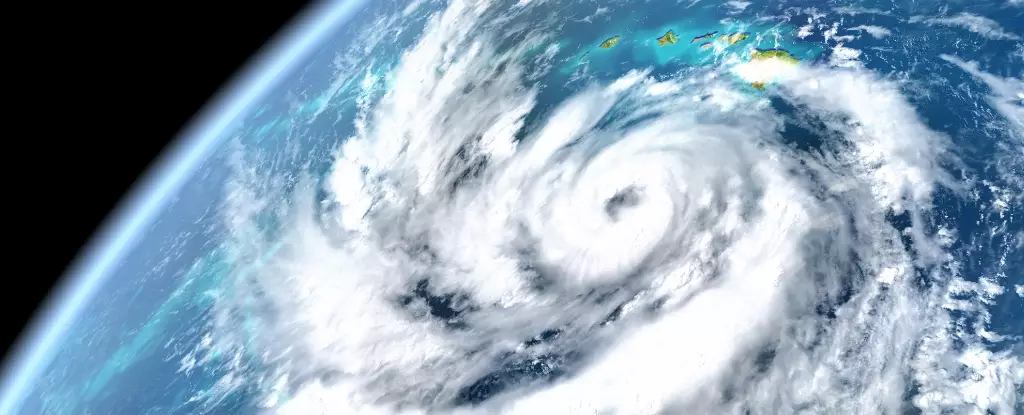In a remarkable leap toward redefining weather forecasting, Microsoft has unveiled its innovative artificial intelligence (AI) model, Aurora, which has the potential to change the way we understand and predict extreme weather events. This audacious development showcases the immense power of AI in accurately tracking air quality, weather patterns, and even the behavior of tropical storms, effectively placing traditional forecasting methods under the microscope. It is a critical moment not just for meteorology but for how society at large prepares for the impacts of climate change.
The findings published in the journal Nature claim that Aurora can produce 10-day weather forecasts and predict hurricane trajectories more accurately and efficiently than any existing forecasting mechanism. According to senior author Paris Perdikaris, the model’s capabilities mark a watershed moment: “For the first time, an AI system can outperform all operational centers for hurricane forecasting.” Such a statement raises eyebrows, as it promises to upend age-old paradigms that have defined weather predictions for decades.
Traditional Models vs. AI Efficiency
To appreciate Aurora’s impact, one must first understand the traditional models engrained in meteorological practice. These models rely on fundamental physical principles—mass conservation, energy conservation, and momentum—that necessitate significant computational power and financial resources. Aurora, on the other hand, achieves remarkably efficient predictions using historical data alone at a fraction of the cost. Researchers assert that the computational burden of Aurora was several hundred times less, paving the way for wider accessibility and quicker decision-making in crisis situations.
The advent of such AI models is not merely a scientific novelty but a pressing necessity. As climate change exacerbates weather unpredictability, the importance of precise forecasting becomes paramount. For those in vulnerable areas prone to hurricanes, typhoons, and the like, the implications are staggering. Aurora’s declaration of consistency in outperforming seasoned institutions like the U.S. National Hurricane Center and the European Centre for Medium-Range Weather Forecasts (ECMWF) speaks volumes about the shift in potentials.
Implications for the Future
The urgency of climate change cannot be overstated, and witnessing an AI system successfully navigate complex meteorological data may represent humanity’s best shot at survival in an increasingly unpredictable environment. Perdikaris envisions a future where “systems can directly work with observations from remote sensing sources” to deliver high-resolution forecasts—an exhilarating prospect that could herald a paradigm shift in scientific clarity.
However, while the academic community and technology giants like Microsoft are racing to refine AI applications in weather forecasting, we must critically evaluate the ethical implications of such technology. Should accuracy and efficiency come at the expense of human oversight? What if these systems evolved beyond our control or understanding, especially in a sector as sensitive as weather prediction? These questions remain largely unanswered as we stand on the precipice of a technological revolution.
The Competitive Landscape
Adding fuel to the fire is Huawei’s Pangu-Weather AI model, which emerged earlier this year, also aiming to reshape forecasting paradigms. The collaboration between tech giants and research communities highlights an ongoing arms race to dominate the future of meteorological technology. As more organizations, including Meteo-France and the ECMWF itself, race to incorporate AI into their forecasting arsenals, we can expect a battle not only for accuracy but for public trust. These organizations must consider their historical methodologies while adding a technologically superior approach, striving for better predictive models without abandoning years of climatological science.
In a world still grappling with transitioning from traditional models to advanced machine learning, one question lingers: can we maintain the ethical standards and prudent skepticism necessary for responsible AI deployment? Given the stakes involved, balancing technological progress with social responsibility will be crucial as we march into this new era of forecasting capabilities.
Our climate is changing at an alarming rate, and with it, the responsibility of providing accurate weather predictions weighs heavier than ever. Aurora and its competitors may hold the keys to safeguarding communities against the wrath of nature, but vigilance and ethical considerations must remain at the forefront of this unfolding narrative.


Leave a Reply